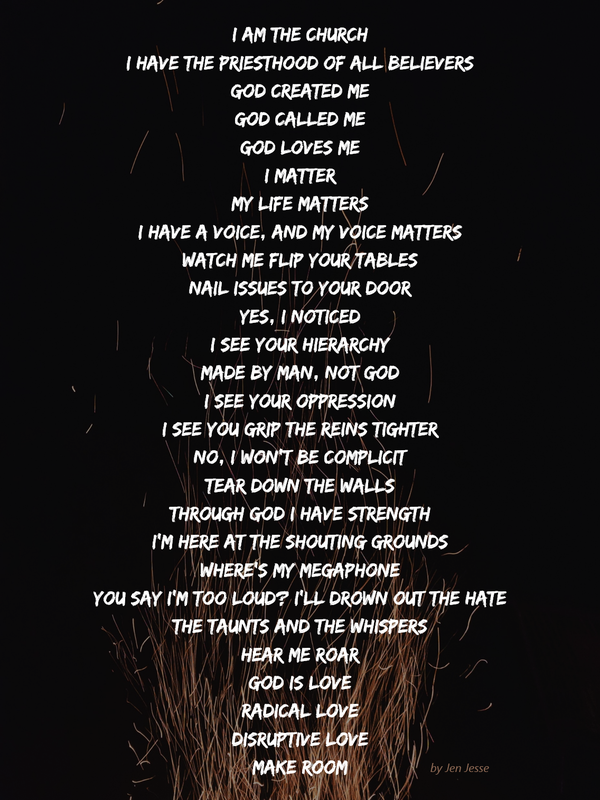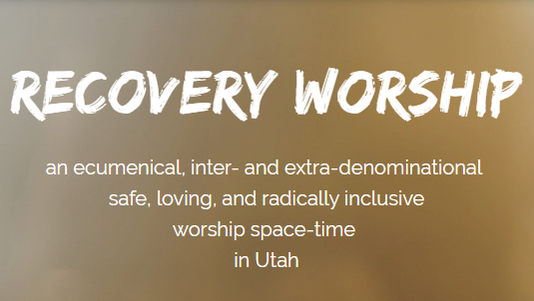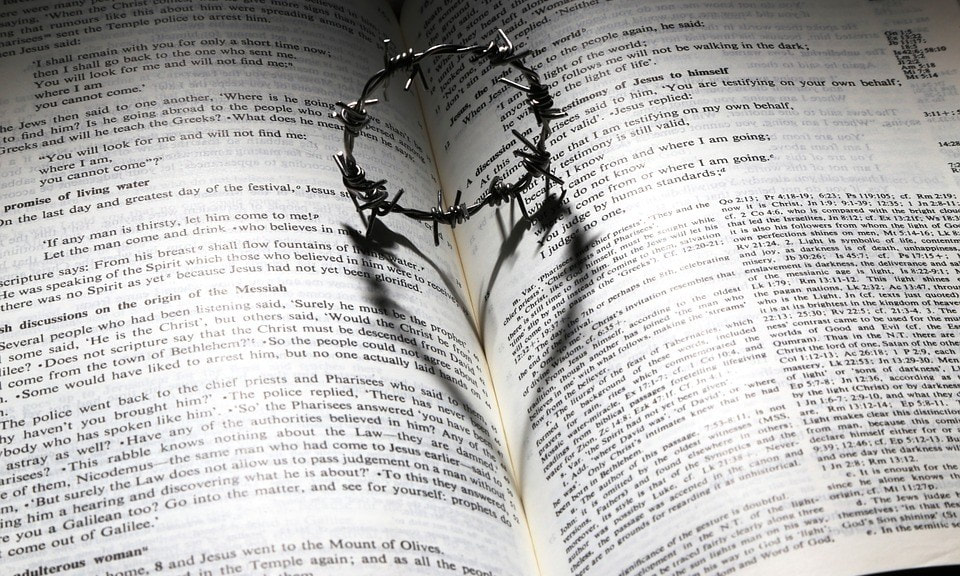I'm skipping a meeting today. I'm skipping a meeting today, not because I'm tired and didn't sleep well, or because I have a conflict, or because I have a migraine, or because I have other work to do, or because I woke up late, or because I'm suffering bad cramps, or because I'm annoyed, or because it will be boring...some of those things are also true, but they are not factors in my reasoning today. I'm skipping a meeting today because I'm sick of being in spaces where I'm simply tolerated but not accepted, greeted but not welcome. I'm skipping a meeting today because there are few safe spaces in the world, and this meeting, for me, no longer is. It was always kind of on the fence, but events over the past month (since the last meeting) have shown me that this meeting, for me, is definitively not safe. I'm skipping a meeting today, not because everyone involved is perpetuating harm, but because some of them are, and enough people are that it's a systemic problem rather than something smaller.
1 Comment
I was feeling both beaten down and empowered, so I started writing on my whiteboard something that someone recently told me: I am the church, I am the priesthood of all believers. And I kept going, kept writing, and suddenly the words just kept coming out. So here it is, my poem: I am the church I have the priesthood of all believers God created me God called me God loves me I matter My life matters I have a voice, and my voice matters Watch me flip your tables Nail issues to your door Yes, I noticed I see your hierarchy Made by man, not god I see your oppression I see you grip the reins tighter No, I won’t be complicit Tear down the walls Through god I have strength I’m here at the shouting grounds Where’s my megaphone You say I’m too loud? I’ll drown out the hate The taunts and the whispers Hear me roar God is love Radical love Disruptive love Make room This is the short-ish version of a much, much longer story. Someday I'll work on the longer version, but for now... 1) On Music in Worship: I love music. I have always loved music. To me, music is 10000% a language. But, sadly and unbelievably, many are still fighting "the worship wars" and trying to spread the idea that the only "real" or "sacred" music are old hymns, not contemporary music. I could write pages and pages and chapters on this topic, but here are a few bottom-lines: - a lot of songs in the hymnals are contemporary songs from the 70s/80s/90s and beyond, re-styled as a hymn. - if you think all contemporary music is "vapid" or "shallow" or "has nothing to say": 1, let me see your hymnal; and 2, there is a wealth of powerful contemporary music out there, you just have to find it. - if you're allowed to have a preference for pipe organs [the official instrument of the disciples, obv.] over guitars & drums & other instruments, why am I not allowed to have a preference for more modern instruments over pipe organs? Anyway. We have a diversity of musical styles that have been / are currently incorporated into the way we worship. Why not celebrate that diversity? Why not come together, share our styles with each other and with God, and admire the beautiful differences all to God's glory? 2) On Affirmation Again, I could write pages and chapters on tolerance vs. affirmation, greeting vs. welcoming. And many have, particularly people of color and people in the LGBTQIA+ community. But, to keep this short-ish, the keys are: - you must actually welcome and fully affirm people in order for them to feel welcome. Have you ever gone to a space where you feel unwelcome? Let alone in A CHURCH? It's the worst. Don't just tolerate people. Don't tell them you love them but hate their essence which you believe is sin. Get to a place where you affirm people for who they are and don't wish to change them or cast judgement on them. - there are some churches that don't really talk about issues like this. They don't exactly say, "x type of people are not welcome here," but they also don't say "x type of people are absolutely welcome here and we freaking love them." That's not welcoming. You might be welcoming in person, but statistically you are more likely to be unwelcoming, and who wants to waste their time and spoons figuring it out? It is too much to ask of people. Heck, I am just a cishet white ally, and even I have felt the microaggressions and the welcome. Even I have noticed the tangible difference between full affirmation/understanding/acceptance and mere tolerance. And I'm sick of it. If I'm sick of it, don't you think people belonging to more marginalized groups than I are even sicker of it? 3) On the intersection of these two things So, here in Utah, there aren't exactly a whole lot of mainline churches. In fact, of the 4 largest mainline denominations (of which there are 57 thousand congregations across the U.S.), there are only 45 within 50 miles of Salt Lake City. So what if you're a mainline Christian (i.e., not evangelical or fundamentalist) who wants to worship in Utah? You've got some limited choices already. What if you want a church that's radically inclusive? The short-cut way to find this is to look for a church that's open and affirming to the LGBTQIA+ community - that's a pretty good litmus test for whether a church will truly accept people of all colors, genders, orientations, abilities, immigration statuses, etc. etc. etc., and enable them all to fully participate in the life of the church - including leadership, marriage, and ordination. Well, at least here in Utah, if this is a requirement for you (it is for me), your options drop even further. I don't have exact numbers, but I estimate about a dozen or fewer churches. So, what if your second criteria, just the second one, is that you want some contemporary music? Or at least a "blended" service, or "eclectic" or "diverse" or something like that? [This is not to portray worship as consumerism, which is kind of what we're wanting to avoid; but, again, to be brief, people should be able to be comfortable in worship and in their faith community.] Zero. That is the number of fully and openly affirming, progressive mainline churches with contemporary-ish services in Utah. I'll say it again: ZERO. So. What's a progressive/unfundamentalist/deconstructed and affirming/inclusive/welcoming Christian supposed to do? About a year ago, I felt something in the pit of my stomach. Perhaps you know the feeling. I felt it pushing me to start a new service. No way, I thought. Over the next several months, I thought more about that idea, as it took root and grew. What would a new service look like? What does it look like to be affirming and not just welcoming? Every day I thought about it. I tried to find what I was looking for - online, in other church services - but I always came away with an even stronger pull. So finally one day in January, I sat down and wrote out my thoughts. I just started writing. I shared it with a few of my local ELCA friends and some of my non-local friends, and they thought it was great. So, I wrote some more, and turned what was now a proposal into a website for Recovery worship service, an ecumenical, inter- and extra-denominational, safe, loving, and radically inclusive worship space-time in Utah. This service probably won't appeal to too many people already in the pews -- after all, they're already in the pews. Sure, a few of them might like to attend or might feel more comfortable. But really, this service is meant for the people not in the pews. It's a worship service for deprogramming; for unfundamentalists; for those pushed aside by historical man-made structures; for women; for people of color; for the LGBTQIA community; for people with disabilities; for immigrants; for indigenous peoples / first Americans; for families of one and families of many; for children and youth, the elderly, the young-ish, and the middle-aged; for people who society puts last; for the unchurched, the dechurched, the lifelong Christians, the spiritual; for people with questions; for the oppressed, the recovering oppressor, and those who are both; for the love of all humankind. Our recovery. I shared the full proposal with a few local people during Lent, and there is definite interest to proceed. So now, I'm sharing it more widely - in fact, I emailed about 50 people earlier today to invite them to an intro/interest meeting next week. I have so many feelings. In the church world, it's kind of a given that sometime during the Advent or Christmas season, it's kind of a given that we'll sing (or a soloist will sing) The Magnificat, the Canticle of Mary. We also sing it during evening prayer services (including, at least in the Lutheran world, during Lent as part of Marty Haugen's Holden Evening Prayer). But I've never heard it during the Triduum, The Three Days. Today, on Holy Saturday, I can't get it out of my head, nor do I want to. For me, it takes on new meaning during these Three Days, as we commemorate/celebrate the crucifixion and the resurrection. For we today already know how the story ends - we already know the Good News of the resurrection! Thus we can feel the poignancy of the passion while also recognizing it as an act of the deepest love, all in light of the hope that we feel from the resurrection. So to borrow Mary's song, originally in celebration during her pregnancy with Jesus, and sing it during this time when we expectantly wait for Easter Day, the day of the resurrection, brings a different meaning. We're not just in communion with Mary, accompanying her joy before the birth, but we are in communion with humanity, celebrating the ongoing love and hope that the passion and resurrection bring. My favorite version of the canticle is David Haas's "Holy Is Your Name" - here it is, with a few very small changes for this season: My soul is filled with joy as I sing to God my savior You have looked upon your servant, you have visited your people (And holy is your name, through all generations! Everlasting is your mercy to the people you have chosen And holy is your name) I am lowly as a child, but I know from this day forward That [your] name will be remembered, for all will call me [/you] blessed (And holy is your name, through all generations! Everlasting is your mercy to the people you have chosen And holy is your name) I proclaim the power of God, you do marvels for your servants Though you scatter the proud-hearted and destroy the might of princes (And holy is your name, through all generations! Everlasting is your mercy to the people you have chosen And holy is your name) To the hungry you give food, send the rich away empty In your mercy you are mindful of the people you have chosen (And holy is your name, through all generations! Everlasting is your mercy to the people you have chosen And holy is your name) In your love you now fulfill what you promised to your people I will praise you, Lord, my savior, everlasting is your mercy (And holy is your name, through all generations! Everlasting is your mercy to the people you have chosen And holy is your name) Everyone always seems to want to ask, "What's so good about Good Friday?" (what with the crucifixion on the cross). Today, when I thought of "the lynching tree" as many call it, immediately "The Hanging Tree" popped into my mind - yes, the song from The Hunger Games: Are you, are you, coming to the tree (1) They strung up a man they say who murdered three (2) Where dead man called out for his love to flee (3) Where I told you to run so we'd both be free (4) Wear a necklace of rope/hope side-by-side with me Strange things did happen there, no stranger would it be If we met at midnight in the hanging tree The song is many things: it's about freedom through death, it's about escaping a living reality that's worse than dying, it's an anthem against oppression, it's a call join the resistance no matter the cost, it's a signifier of the hope of a new day after a proverbial midnight death. Our reality is that we are both victims and perpetrators of original sin. Surely to live under the oppression of sin, and to be complicit in sin against others, is a living fate worse than dying. But God so loved the world that God sent Jesus into the world, to live among us, to live as we do, to embody Love, to be the physical manifestation of The Word of God, to die, and to be exalted to Eternal Life. That's not to say that there was an actual blood pact and God or someone ranked higher than God (??) demanded a sacrifice "or else." That doesn't sound very loving on God's part, and to imply that there were forces beyond God's control would mean that God isn't so God-like after all. So why the need for Jesus' death? Jesus told us himself: "No one has greater love than this, to lay down one's life for one's friends." Consider, perhaps the universe did not require Jesus' death, God did not require Jesus' death, Jesus did not require his death; we did. It was our own societal thirst to continue sin and oppression, to place blame on the innocent for trumped up charges, and to call for blood that led to the calls to "crucify Him, crucify Him!" It was our own human existence, so ingrained in a dire system of inequality, corruption, oppression, and misconstrued laws that prevented us from truly understanding the power of radical love, which does no wrong and is the proper fulfilling of the law. And how could we even comprehend the depths of God's love for us? It's something that's still hard to fully understand today. It's not so tangible. But Love Incarnate submitted himself to our own calls for his death in one of the most gruesome ways. Whereas we thought/think that God would reconcile our personal sins by condemning us for eternity, Jesus reconciled our sinful nature through love. He flipped the tables, as it were, on our own limited understanding and showed us that love is real, love is here, and love is for absolutely everyone. A strange thing, what happened there. Through Jesus' death, we can understand the unlimited power of love. We can be free, we can fight against corruption and oppression, we can speak truth to power, we can bring hope to our neighbor by accompanying and advocating for them, we can spend our lives acting in love. If we come to the cross, to the lynching tree, if we commemorate and acknowledge Jesus' greatest act of love, we can truly understand the depths of hope that comes from Jesus' still-loving death. Good Friday indeed! We’re probably all familiar with the idea of leading by example. But who exactly has to do that? Just the senior pastor? Just the church staff? Just the council president? Just those who oversee a church ministry? Who exactly are the leaders in the church? Consider this: if I wear a Green Bay Packers shirt, everyone who sees me will assume I’m a Packers fan, and rightly so. If, a week later while wearing a plain shirt, I talk very rudely about another football team or another NFL city, people may come to associate my behavior with all Packers fans. This becomes especially true when multiple people act in a similar way. We see this in action with such stigmas about, say, Philadelphia Eagles fans or Oakland Raiders fans – there's a wide stigma, true or not, that they have poor sportsmanship and are unlikeable. Similarly, what happens if I wear a “Jesus freak” shirt or even a simple cross necklace, then talk nastily about others, engage in gossip, spout hateful values, blame others for my mistakes, insist that my personal flaws are ‘just how I am' without making any effort for self-improvement, whine instead of being constructive, act bigoted, discriminate against others, engage in hate speech or microaggressions, use negative humor and unfriendly sarcasm…all after wearing a metaphorical sign saying, “I’m a Christian”? And this sign doesn’t apply just to shirts or necklaces, of course. It may appear in the messages you post or the pages you ‘like’ on your Facebook page, the “extracurricular activities” section of your resume, the volunteering section of your LinkedIn page, the Jesus fish sticker on your car, through casual conversations, etc. That’s not to say that being open with your faith is a bad thing – of course it is not. But we must be cognizant of the fact that we, ourselves, are advertisements for Christianity. We are the brand ambassadors. And it’s not just because we’ve been elected or appointed to serve as elected leaders at our congregation, or because we volunteer for a certain ministry – those roles are extra. The sole fact that we are Christians means that we are ambassadors, whether we like it or not. (And, really, this applies to any faith.) So, to answer the earlier question: we all are leaders – whether or not we chose to be, whether or not we felt called to be, whether or not we were elected, whether or not we were appointed, whether or not we participate in the church’s ministries, whether or not we attend church regularly, whether or not we attend church at all, whether or not we want to be. Everyone in our church is a leader – some just may be more experienced and more comfortable with the idea of leadership. But whether we are intentional or accidental leaders, we have to be aware of the fact that we are leaders all the time. Because whether we like it or not, someone is watching, and someone is learning – through our behavior – what Christianity means. In our society, we are well-familiar with the concept of one bad example making the rest look bad. As Christians, we are called to confront hate, bigotry, and terrorism all in the name of Christianity. As Christians, it’s our job to be sincere in our efforts to spread the good news, love our neighbors, and prove that those negative things are not the true Christian way. In John 13:34-35, Jesus said, “I give you a new commandment, that you love one another. Just as I have loved you, you also should love one another. By this everyone will know that you are my disciples, if you have love for one another.” And as the old song goes, “they will know we are Christians by our love, by our love.” May we all embrace the idea that we are all Christian leaders, and contemplate how to continually grow and develop in God, both within our church and in the world, so that the world can understand that God is love and God is good. So, you’re a leader in the church. Whose church is it? The long-traditional way of viewing a church is that it ‘belongs’ to the presiding pastor and that what he – historically always 'he' – says, goes. But we must know two things: (1) our church is for the benefit of God, and (2) we function better together, so the old, hierarchical way of thinking does not apply. Rather than adopting a structure where information and direction flows from the bishop down to the pastor and then down to the congregation – or where pastors are sometimes treated more like weekly guest speakers or low-level-employees rather than full contributing members – cooperative church leadership structure can be thought of as a partnership. Bishops, pastors, and congregations work together, sharing information and ideas across the boundaries of titles. Within individual congregations we can push past the old theory of pastor over council over congregation, and promote the structure of pastor, council, staff, and congregation members all working together, each of them empowered to contribute to the common mission in their own way. Not only is this partnership structure beneficial, but it is necessary. Doing God’s work is not always easy, and can sometimes garner a negative response from others. In fact, in 1 John 3:13 we were already notified: “Do not be astonished, brothers and sisters, that the world hates you.” But with our partners, we are made strong and better able to do God’s work: “Come to him, a living stone, though rejected by mortals yet chosen and precious in God’s sight, and like living stones, let yourselves be built into a spiritual house, to be a holy priesthood, to offer spiritual sacrifices acceptable to God through Jesus Christ” [1 Peter 2:4-5]. While every individual has a different role according to their gifts and talents (as we remember from the “one body, many members” lesson in 1 Corinthians 12), we all come together as equals, as we are in God’s eyes. With this understanding, we can move past the old hierarchical way of thinking and grow to a point where each person in the church is enabled, accountable, and equipped for true leadership. We’re probably all familiar with the idea of leading by example. But who exactly has to do that? Just the senior pastor? Just the church staff? Just the council president? Just those who oversee a church ministry? Who exactly are the leaders in the church? Consider this: if I wear a Green Bay Packers shirt, everyone who sees me will assume I’m a Packers fan, and rightly so. If, a week later while wearing a plain shirt, I talk very rudely about another football team or another NFL city, people may come to associate my behavior with all Packers fans. This becomes especially true when multiple people act in a similar way. We see this in action with such stigmas about, say, Philadelphia Eagles fans or Oakland Raiders fans – there's a wide stigma, true or not, that they have poor sportsmanship and are unlikeable. Similarly, what happens if I wear a “Jesus freak” shirt or even a simple cross necklace, then talk nastily about others, engage in gossip, spout hateful values, blame others for my mistakes, insist that my personal flaws are ‘just how I am' without making any effort for self-improvement, whine instead of being constructive, act bigoted, discriminate against others, engage in hate speech or microaggressions, use negative humor and unfriendly sarcasm…all after wearing a metaphorical sign saying, “I’m a Christian”? And this sign doesn’t apply just to shirts or necklaces, of course. It may appear in the messages you post or the pages you ‘like’ on your Facebook page, the “extracurricular activities” section of your resume, the volunteering section of your LinkedIn page, the Jesus fish sticker on your car, through casual conversations, etc. That’s not to say that being open with your faith is a bad thing – of course it is not. But we must be cognizant of the fact that we, ourselves, are advertisements for Christianity. We are the brand ambassadors. And it’s not just because we’ve been elected or appointed to serve as elected leaders at our congregation, or because we volunteer for a certain ministry – those roles are extra. The sole fact that we are Christians means that we are ambassadors, whether we like it or not. (And, really, this applies to any faith.) So, to answer the earlier question: we all are leaders – whether or not we chose to be, whether or not we felt called to be, whether or not we were elected, whether or not we were appointed, whether or not we participate in the church’s ministries, whether or not we attend church regularly, whether or not we attend church at all, whether or not we want to be. Everyone in our church is a leader – some just may be more experienced and more comfortable with the idea of leadership. But whether we are intentional or accidental leaders, we have to be aware of the fact that we are leaders all the time. Because whether we like it or not, someone is watching, and someone is learning – through our behavior – what Christianity means. In our society, we are well-familiar with the concept of one bad example making the rest look bad. As Christians, we are called to confront hate, bigotry, and terrorism all in the name of Christianity. As Christians, it’s our job to be sincere in our efforts to spread the good news, love our neighbors, and prove that those negative things are not the true Christian way. In John 13:34-35, Jesus said, “I give you a new commandment, that you love one another. Just as I have loved you, you also should love one another. By this everyone will know that you are my disciples, if you have love for one another.” And as the old song goes, “they will know we are Christians by our love, by our love.” May we all embrace the idea that we are all Christian leaders, and contemplate how to continually grow and develop in God, both within our church and in the world, so that the world can understand that God is love and God is good. So, you’re a leader in the church. Whose church is it? The long-traditional way of viewing a church is that it ‘belongs’ to the presiding pastor and that what he – historically always 'he' – says, goes. But we must know two things: (1) our church is for the benefit of God, and (2) we function better together, so the old, hierarchical way of thinking does not apply. Rather than adopting a structure where information and direction flows from the bishop down to the pastor and then down to the congregation – or where pastors are sometimes treated more like weekly guest speakers or low-level-employees rather than full contributing members – cooperative church leadership structure can be thought of as a partnership. Bishops, pastors, and congregations work together, sharing information and ideas across the boundaries of titles. Within individual congregations we can push past the old theory of pastor over council over congregation, and promote the structure of pastor, council, staff, and congregation members all working together, each of them empowered to contribute to the common mission in their own way. Not only is this partnership structure beneficial, but it is necessary. Doing God’s work is not always easy, and can sometimes garner a negative response from others. In fact, in 1 John 3:13 we were already notified: “Do not be astonished, brothers and sisters, that the world hates you.” But with our partners, we are made strong and better able to do God’s work: “Come to him, a living stone, though rejected by mortals yet chosen and precious in God’s sight, and like living stones, let yourselves be built into a spiritual house, to be a holy priesthood, to offer spiritual sacrifices acceptable to God through Jesus Christ” [1 Peter 2:4-5]. While every individual has a different role according to their gifts and talents (as we remember from the “one body, many members” lesson in 1 Corinthians 12), we all come together as equals, as we are in God’s eyes. With this understanding, we can move past the old hierarchical way of thinking and grow to a point where each person in the church is enabled, accountable, and equipped for true leadership. Answering the call to active leadership: As we find ourselves in the time shortly after the 500th anniversary of the Reformation, we encourage the idea of re-formation throughout the church. If you haven't already, begin talking about reformation, leadership, decolonization, and partnership in your church. By coaching and empowering individuals in your organization, you can encourage them to accept and embody the leadership responsibility they already have to continually further God's loving work throughout the church, community, and world. As we find ourselves in the time shortly after the 500th anniversary of the Reformation, we encourage the idea of re-formation throughout the church. If you haven't already, begin talking about reformation, leadership, decolonization, and partnership in your church. By coaching and empowering individuals in your organization, you can encourage them to accept and embody the leadership responsibility they already have to continually further God's loving work throughout the church, community, and world. |
PostsHere is it, y'all: love changes things 8/7/20
Good Friday in the Midst of a Pandemic 4/10/20 Wrestling with Faithfulness and Transformation (a sermon) 10/21/19 Healing of the Outcasts (a sermon) 10/18/19 Reckon-ciliation (a poem) 7/19/19 The Road to Recovery 6/26/19 Perpetuating Sins of the Church 8/16/18 It's Tuesday and I'm Overwhelmed 5/8/18 Music is a Language 5/3/18 Skipping a Meeting 4/10/18 Spark (a poem) 4/5/18 Recovery 4/4/18 A New Old Song for Holy Saturday 3/31/18 Good Friday? 3/30/18 Who are the Leaders in Your Church? 1/2/18 |
||||||






 RSS Feed
RSS Feed
